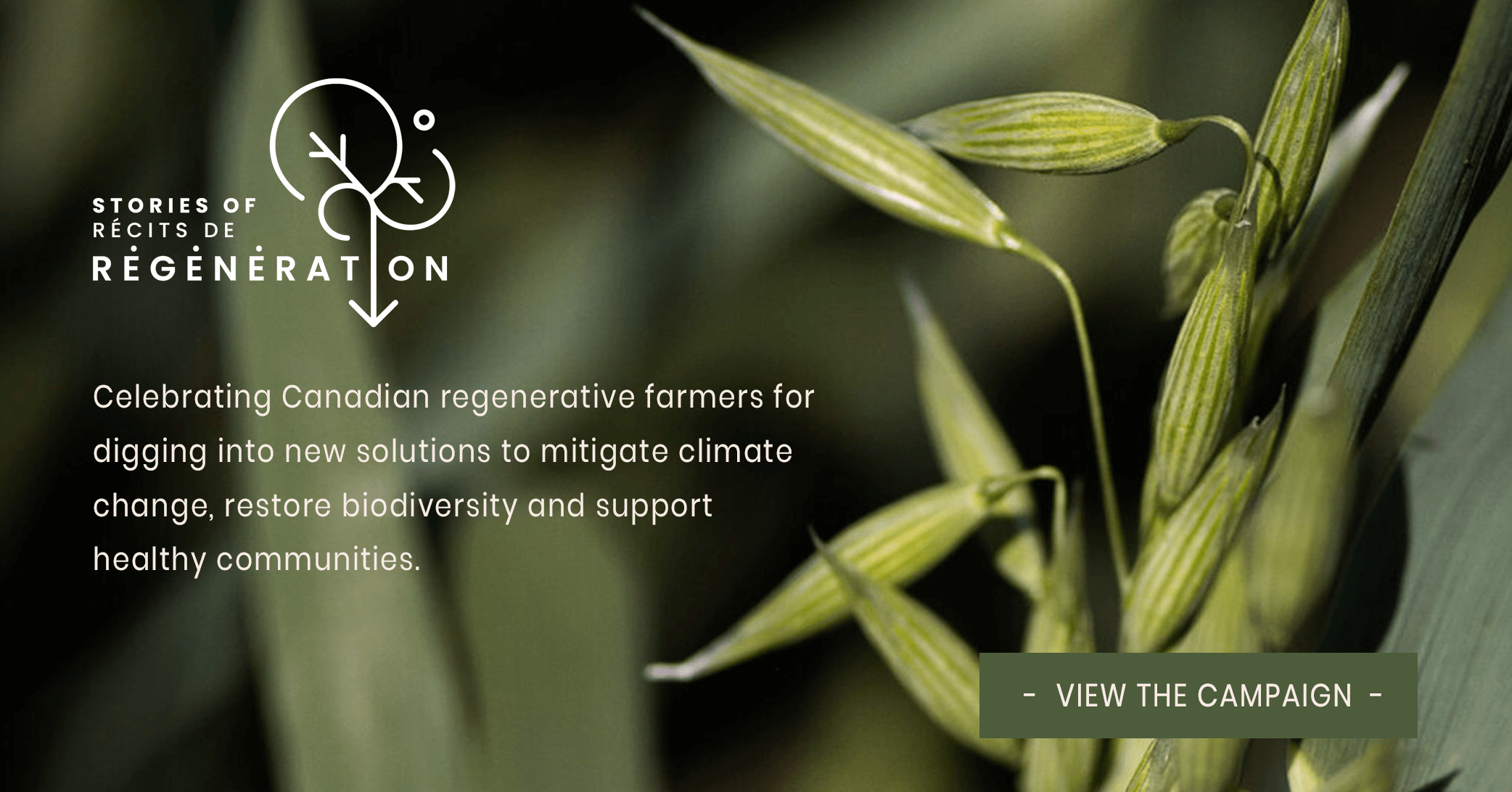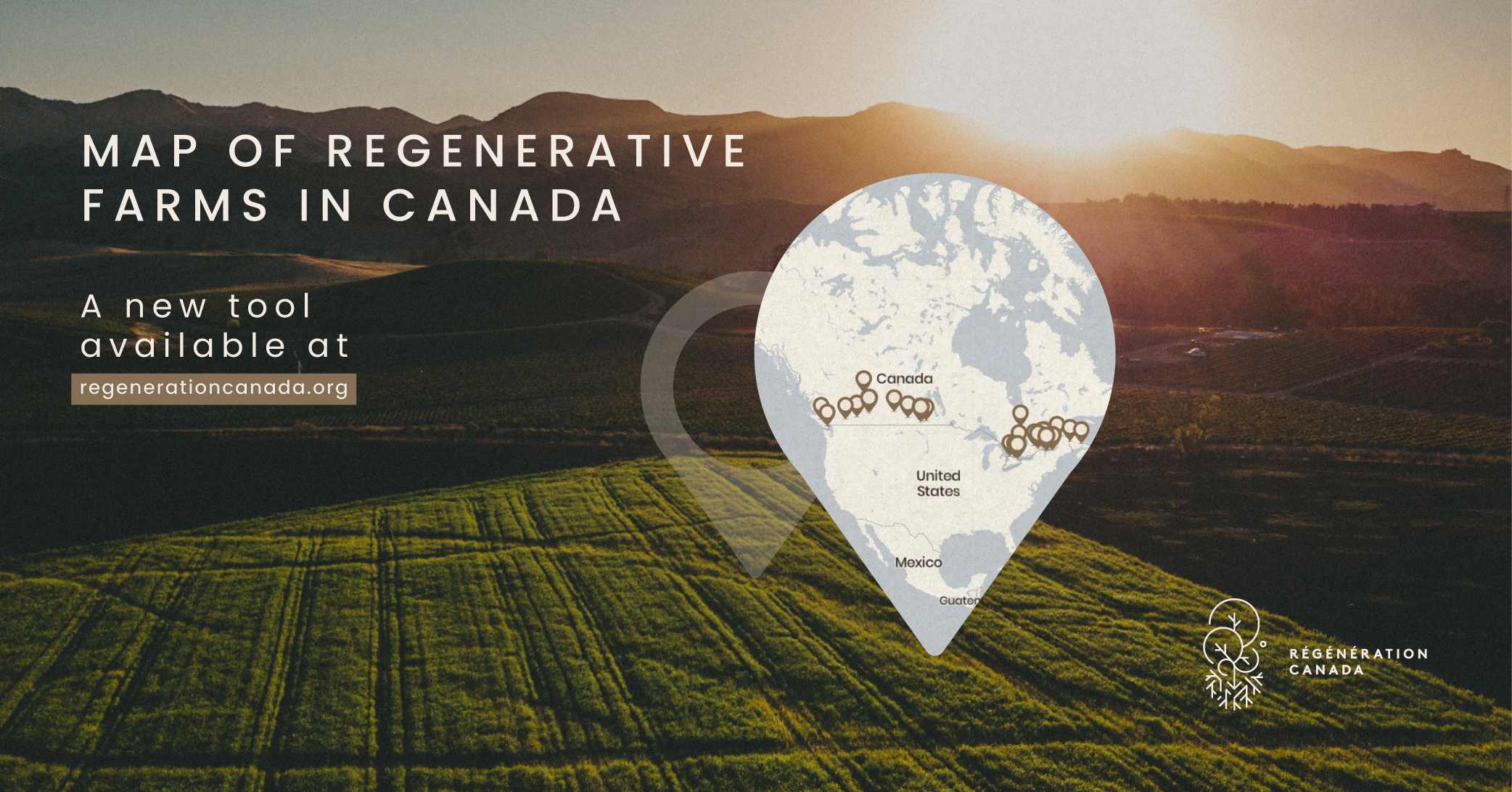A truly regenerative agricultural system advocates for fair labour conditions for everyone involved- farmers, farm labourers, processors and consumers, to name a few. In order to prevent extreme disparities, discrimination and social inequality, a regenerative food system advocates and creates space for all voices to be heard and participate in decision-making at all levels of government.
Hiding behind the neatly packaged foods on supermarket shelves lie many stories. One of them is of systemic inequities, impacting not only the land and farmers but also the livelihoods of food chain workers and marginalized communities deprived of affordable, nutritious, culturally-appropriate foods. Addressing these disparities is pivotal for food justice, necessitating recognition of the racial, social, and economic disparities entrenched within our food system and ensuring universal access to nutritious food. Regenerative agriculture plays a crucial role in advancing food justice by prioritizing environmental and social well-being.
One organization championing food justice in Canada is Just Food Community Farm, a 150-acre urban incubator farmstead in Ottawa’s Greenbelt. Through its Start-Up Farm Program, Just Food supports new farmers in accessing land, resources, and training, fostering a future where food serves as a source of empowerment, cultural connection, and well-being.
During the 2023 Stories of Regeneration tour, Regeneration Canada’s team visited two farms supported by Just Food’s Start-Up Farm Program: Chi Garden and Urban Fresh Produce. Join us as we explore the stories of these farms and navigate the challenges in achieving food justice in Canada.

Established in 2015 by Beijing-born urban farmer and educator Sun Shan and her partner Li Bo, Chi Garden specializes in organically-grown Asian vegetables and herbs, along with kimchi and fermented products. The pair manage their 1.5 acres using no-till practices. At local markets, Sun Shan engages customers with her wealth of knowledge about the medicinal properties of food, sparking conversations about the importance of incorporating lesser-known vegetables into one’s diet. Her signature “diversity salad” showcases over 10 types of greens, highlighting her passion for crop diversity. Sun Shan also prioritizes seed saving and cultivates wild edible plants, demonstrating her commitment to preserving biodiversity.
Sun Shan aims to foster a sense of belonging for immigrants while contributing to community food sovereignty. Growing crops tied to her heritage empowers her and expands community access to culturally-important foods. Plots like Chi Garden allow new immigrants like Sun Shan to plant roots in Canada, preserving heritage while expanding food sovereignty.

Straight from the Caribbean island of Saint Lucia, Chadwick Lewis now runs Urban Fresh Produce. He started farming on his family’s land, cultivating over 25 different crops before moving to Canada.
After enrolling in a horticulture program at Algonquin College, Chadwick discovered Just Food – a serendipitous next step that combined formal training with his lifelong passion for food production. Chadwick’s current focus is on building soil and establishing a balanced ecosystem to minimize weed growth. For him, farming is not just a livelihood but a soul-satisfying endeavour.
Just Food’s Start-Up Farm Program has been instrumental for both farms, as well as providing essential support to new farmers across the Ottawa region. It enables participants to test ideas, gain skills, and obtain organic certification, contributing to the local food supply while promoting sustainable farming practices. With a commitment to diversity, the program welcomes individuals from various backgrounds, including non-farmers, second careerists, new Canadians, and experienced farmers seeking a fresh start.
Regenerative Agriculture’s Role in Food Justice
Regenerative agriculture aligns closely with the broader goals of food justice, prioritizing the well-being and dignity of all participants in the food system. It advocates for fair wages, safe working conditions, and inclusion across the board, from migrant farmers to Indigenous communities. By empowering individuals and fostering inclusivity, regenerative agriculture seeks to cultivate a food system where everyone can participate in and influence the way food is grown, processed, and distributed.
Barriers to Food Justice
Food justice encompasses an array of food access concerns. While food security focuses on ensuring that everyone has enough food to eat, food sovereignty emphasizes the rights of communities to control their own food systems in ways that are culturally, socially, and ecologically appropriate. Food justice builds on food sovereignty as an issue of equity: tackling systemic barriers so that all people hold power regarding land stewardship, fair labour, and food access.
Racial inequity
One of the most glaring barriers is racial inequity. By excluding marginalized communities from land ownership, fair wages, and equitable opportunities, we perpetuate cycles of poverty and disempowerment. As highlighted by Leticia Ama Deawuo, Executive Director of SeedChange, we cannot separate food justice from racial injustice when Canada’s food security relies on the underpaid labour of migrant workers, predominantly people of colour, who endure unjust conditions to produce our country’s food supply. The COVID-19 pandemic has starkly illuminated this reality, disproportionately affecting migrant farmers. Furthermore, systemic racism contributes to alarming rates of food insecurity among Black Canadians, who are 3.5 times more likely than their white counterparts to lack access to affordable food.
Recognizing and dismantling these barriers is essential for achieving true food justice and ensuring equitable access to nutritious and culturally-appropriate food.

Indigenous food sovereignty
In Canada, Indigenous food sovereignty is a crucial pillar of resilience against historical injustices and persisting inequalities. It embodies the inherent right of Indigenous peoples to access culturally-appropriate food produced sustainably. However, colonial dispossession of ancestral lands has significantly eroded Indigenous communities’ control over their food systems, leading to heightened levels of food insecurity. A reliance on non-traditional foods has exacerbated various health challenges, further compounded by the disruption of traditional subsistence practices and the loss of intergenerational knowledge transmission. Therefore, restoring traditional food systems becomes imperative, intersecting with broader food justice movements to protect the well-being, cultural heritage, and self-determination of Indigenous peoples.
Land access
Determining who can engage in agricultural activities and shape the food landscape is fundamental to food justice. In Canada, it remains a significant barrier for aspiring farmers due to soaring land prices, rents, and development pressures. This challenge weighs heavily on young farmers, whose numbers have declined by over 70% in the past three decades. Moreover, as many farms continue to grow larger and consolidate into fewer hands, the increasing value of farmland exacerbates land inequality and threatens the sustainability of agriculture, rendering the prospect of private ownership unattainable for many.
To make farming more accessible, many new farmers are exploring alternative avenues, such as cooperative ownership models, land matching programs, and shared farming spaces like Just Food Community Farm. While cooperatives offer a way forward for some, the growing inaccessibility of land ownership compromises the democratic principles inherent in equitable land distribution. Addressing these inequities is crucial for fostering a fair and sustainable food system that empowers farmers of all backgrounds and generations.
Building a more just food system requires a collective understanding of the hands that feed us and communities’ power to shape nourishing food systems. From ensuring fair labour practices and equitable land access to fostering community self-determination and cultural connection through food, we are called upon to be active participants in creating a more just and nourishing future. Together, we can progress towards a more just and regenerative food system that empowers individuals and communities alike.
To know more about regenerative practices at Just Food Community Farm, watch the short film featuring the farm, listen to the podcast episode with Sun Shan of Chi Garden and Chadwick Lewis of Urban Fresh Produce, and watch the “Regenerating our Roots” webinar recording with Sun Shan.
Join the regenerative agriculture movement! Stay updated with our activities by subscribing to our newsletter and following our social media channels. We are delighted to have you on this journey with us!
If you have any questions or comments about the topics covered in this blog post, please contact our Education & Research Manager at: paige@regenerationcanada.org. If you have questions specific to the Stories of Regeneration campaign, please connect with our Campaign Manager at: alieska@regenerationcanada.org.




